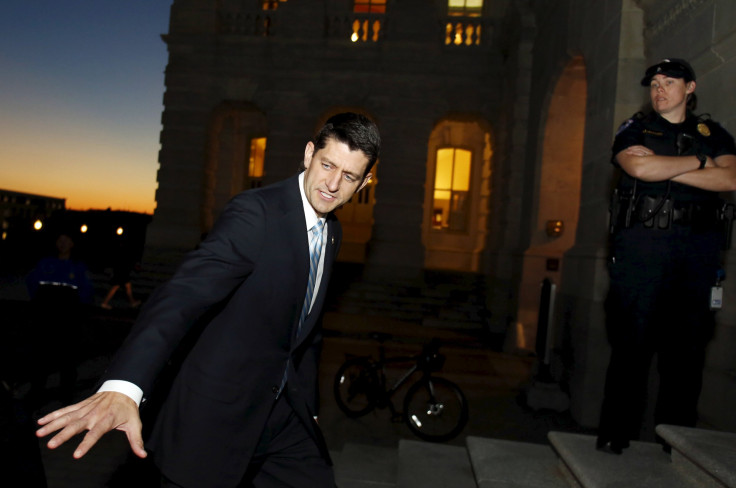Government Shutdown 2015: US House Of Representatives Set To Vote On $1.1T Spending Bill

UPDATE: 11:58 a.m. EST — The U.S. Senate passed the $1.1 trillion spending bill for the 2016 fiscal year Friday after the U.S. House passed it earlier in the morning, the Federal Times reported. The plan is now schedule to go to the desk of President Barack Obama.
UPDATE: 9:44 a.m. EST — The U.S. House of Representatives passed the $1.1 trillion spending bill for the 2016 fiscal year Friday morning, Politico reported. The measure is expected to hit the Senate floor Friday and would fund the federal government through 2016.
Original Story:
The U.S. House of Representatives is expected Friday to vote on the extensive $1.1 trillion spending bill for the 2016 fiscal year, a culmination of weeks of arguments and criticisms from conservative Republicans, McClatchy reported. High spending levels and the absence of restrictions on Syrian refugees and abortion have provoked the ire of conservatives in the House, meaning votes from Democrats will be all the more important in passing the bill.
President Barack Obama and leaders from both sides of the aisle have supported the bill, but one Democratic leader is not sure it will make it through unscathed. House Minority Leader Rep. Nancy Pelosi of California said she’s unsure if enough Democrats will support the measure, the Hill reported.
Some Democrats have said the spending bill favors Republicans, with a primary concern being a provision that would end the ban on exporting crude oil — one that has been in place for decades. Some on the left have also expressed concern that the financial crisis in Puerto Rico failed to be addressed in the bill, the Wall Street Journal reported.
However, House Speaker Rep. Paul Ryan, R-Wis., said he is confident the bill will pass. “I feel pretty good about where we are,” Ryan told the Journal Thursday.
5 things you need to know about the $1.1 trillion government spending bill https://t.co/Y1qDHXIUPa pic.twitter.com/rXIqTeZO0c
— Fortune (@FortuneMagazine) December 18, 2015
The bill includes a version of the Cybersecurity Information Sharing Act, or CISA, the controversial measure that gave companies the ability to share such data with federal agencies, Wired reported. Groups such as the American Civil Liberties Union have decried the measure, saying it allows the government access to people's private data.
Also included in the bill is a measure to make sure 9/11 first responders get medical care for life for health complications stemming from the terrorist attacks, NBC News reported. "Never again will survivors and responders be forced to walk the halls of Congress, begging for their healthcare. Never again will they lose sleep over fear that this lifesaving program will run out," Rep. Carolyn Maloney, D-N.Y., said in a statement.
© Copyright IBTimes 2025. All rights reserved.





















